Are you a prospective or current ASU student looking to get a degree that will put you at the ground floor of an exciting, rapidly growing industry? ASU offers numerous degree programs and minors that teach the skills that are sought after by the microelectronics industry, which is set to grow 33% by the year 2030. With global microelectronics enterprises making massive investments in domestic production, there has never been a better time to pursue a degree that will position you for success in this dynamic field.
Multiple ASU undergraduate majors and minors provide training and expertise applicable to the microelectronics industry. Offered by the Ira A. Fulton Schools of Engineering, the largest school for engineering and technical talent in the nation, ASU’s undergraduate engineering offerings represent an unparalleled breadth and depth of technological innovation.
With numerous undergraduate engineering options to choose from — many of which are offered in a convenient, fully online format — you’ll be ready to join in advance in the microelectronics workforce, or to level up your skills even further through graduate-level programs that will set you up for success in industry or academia.
To find more microelectronics training and education programs offered at ASU view the full catalog.
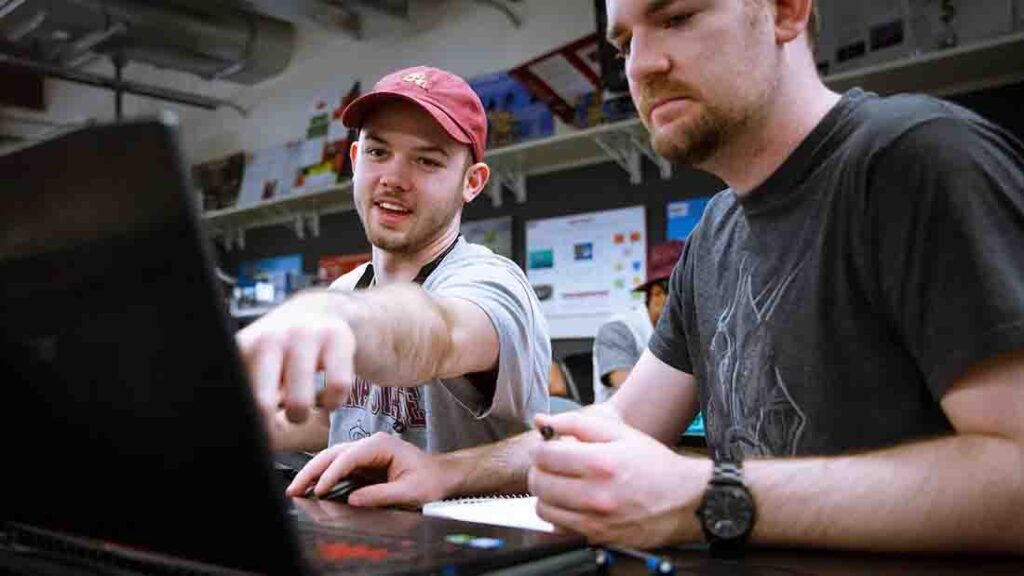
Applied Science (Operations Management), BAS
Graduates of the BAS program with a concentration in operations management are able to provide strategic focus and meet organizational objectives by implementing best practices, managing people and creating value. These skills are essential in advanced manufacturing settings, such as the microelectronics industry.
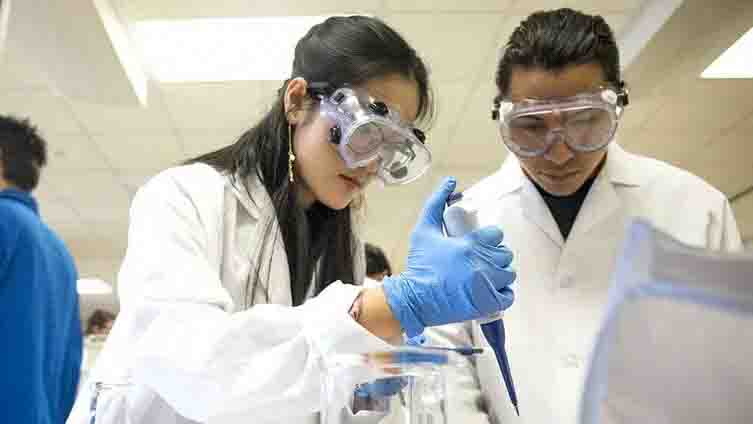
Chemical Engineering, BSE
The BSE program in chemical engineering deals with the application of chemistry, physics and mathematics to the process of converting raw materials or chemicals into more useful or valuable forms. Chemical engineering also involves the design of valuable new materials and chemical products, including for the microelectronics industry.

Chemistry, BS
In the BS program in chemistry, students gain the knowledge and skills to solve problems at the atomic and molecular levels in areas as diverse as microelectronics, energy and sustainability, new materials for technology, medicine and health, nanoscience, environmental science, forensics, cosmetics and food chemistry.

Chemistry, Minor
The minor program in chemistry offered by the School of Mathematical and Natural Sciences gives students expanded proficiency in biochemistry, analytical chemistry, and advanced and integrative fields of chemistry, offering valuable insight applicable to many STEM fields, including microelectronics.

Computer Science (Software Engineering), BS
The software engineering concentration of the BS program in computer science is appropriate for computer science students seeking careers as software engineers. Students learn advanced processes, methodologies and tools for developing and testing large and small software applications in emerging industries including microelectronics.

Computer Science, BS
The BS program in computer science provides a solid foundation in theoretical and practical aspects of computer science for application across numerous industries, including microelectronics. The program ensures students have the requisite critical thinking, effective programming and problem solving skills in a variety of modern programming languages for application across multiple fields.

Computer Systems Engineering, BSE
The BSE program in computer systems engineering focuses on the analysis, design, testing, integration and evaluation of hardware and software systems used across industries, including in microelectronics. The curriculum is grounded in numerous engineering disciplines.
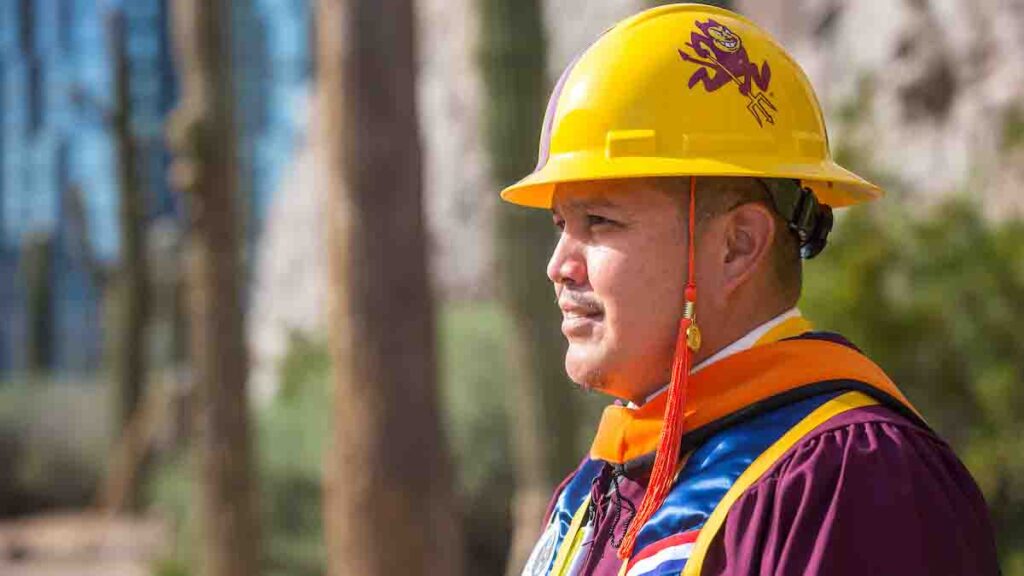
Construction Management and Technology, BS
The BS program in construction management and technology allows students to specialize in construction and facility management. Students learn to organize, lead and manage the building construction business processes related to facility and infrastructure projects, including in the microelectronics industry.
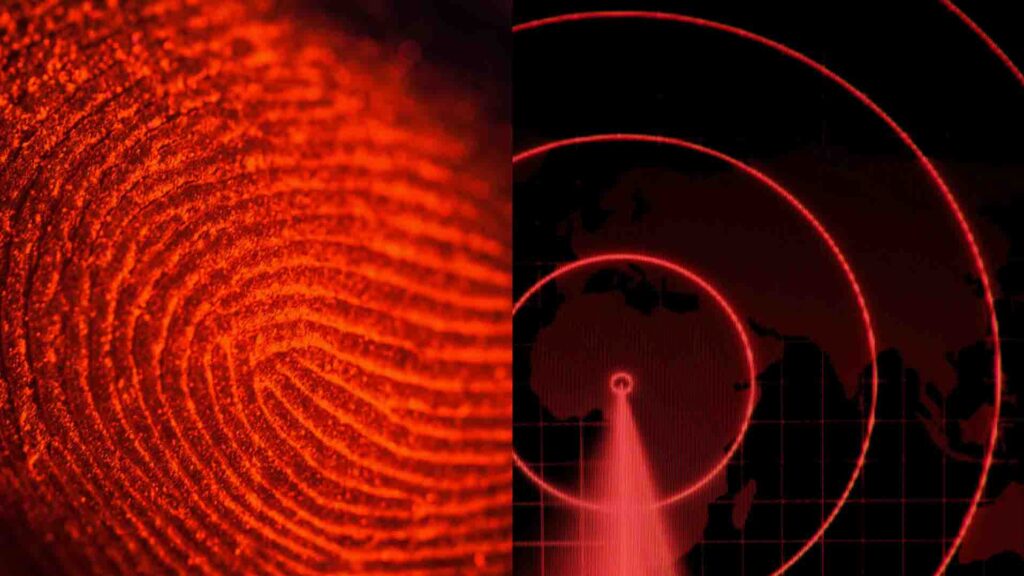
Data Science
The data science certificate program combines the strengths of database skills with interdisciplinary computational statistics with application in business and technical roles in microelectronics. The program trains students to extract insights from complex datasets using a hands-on approach.
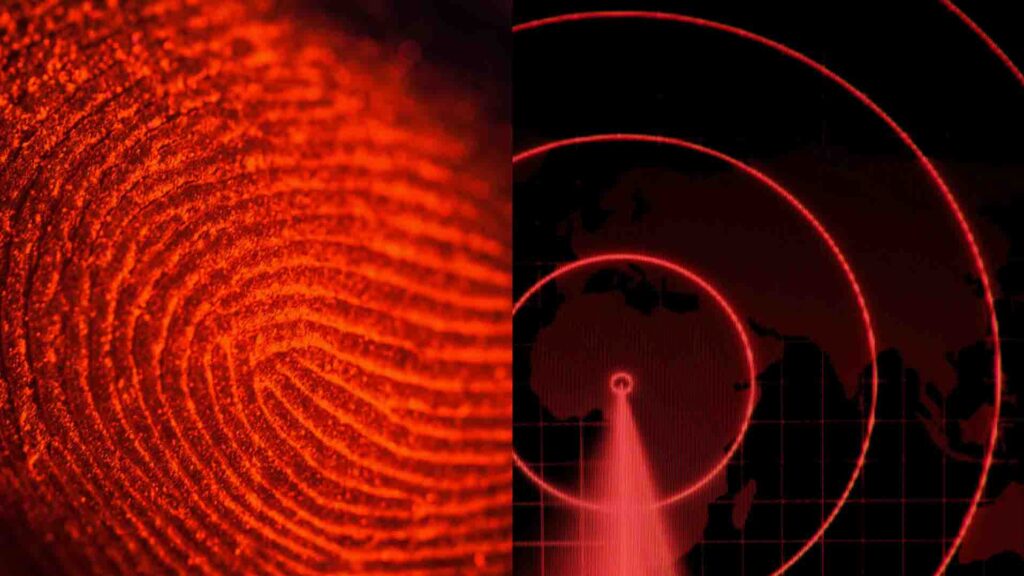
Data Science, Minor
A minor in data science provides students with skills in statistics, probability and coding in the context of large data sets to learn how to manipulate data sets to make conclusions and recommendations that can have an impact in real-world settings, including the microelectronics industry.
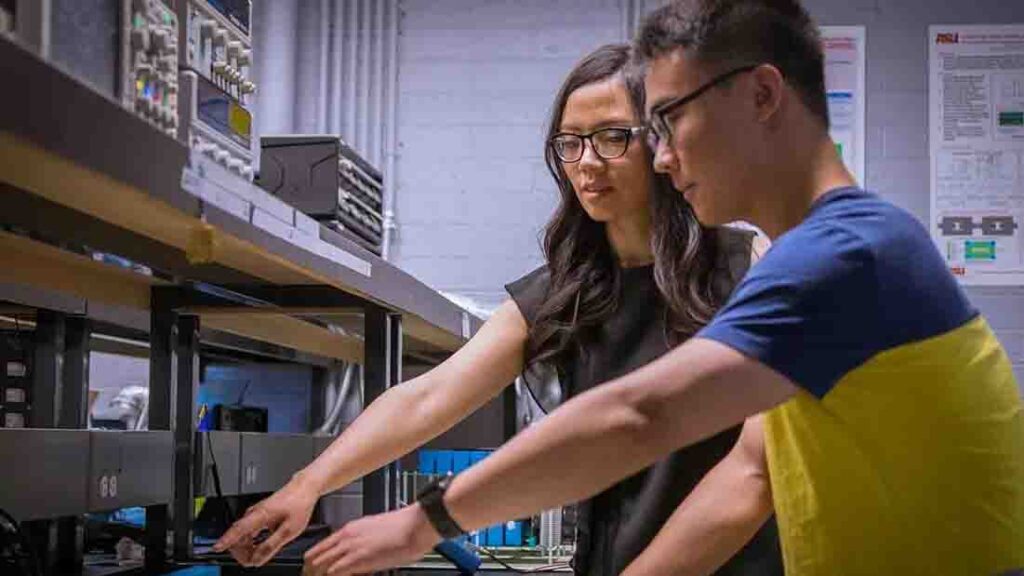
Electrical Engineering, BSE
The BSE program in electrical engineering prepares students for positions as electrical engineers, a vital role in the microelectronics industry. The curriculum includes a number of required upper-division electrical engineering and technical elective courses in such areas as circuits; communication, signal processing and control systems; computer engineering; electromagnetics; power; and solid-state devices.
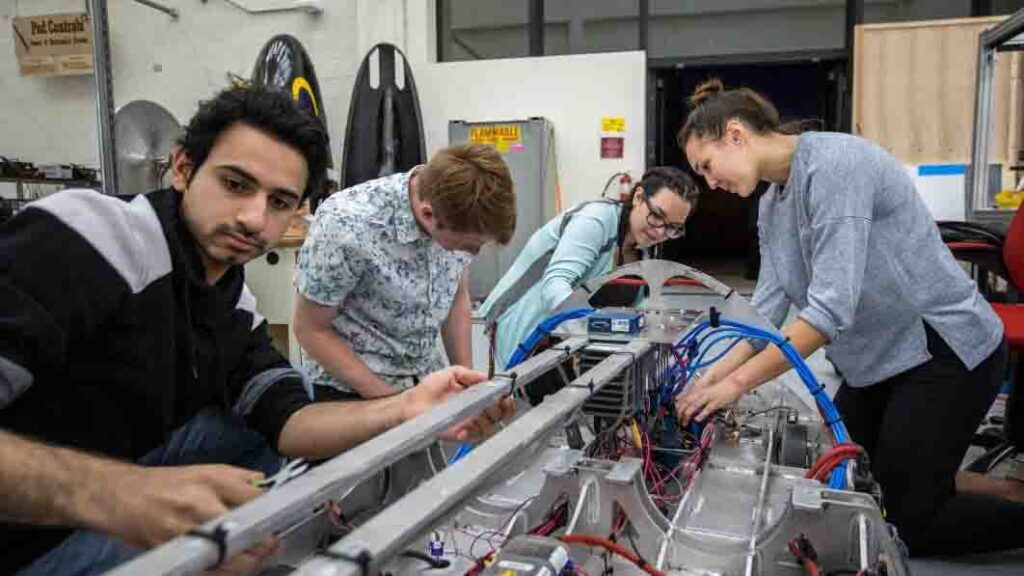
Engineering (Electrical Systems), BSE
Students in the electrical systems concentration of the BSE program build a broad engineering foundation to which they add the skills and knowledge they will need in order to contribute electrical subject matter expertise in transdisciplinary engineering teams, including theory and application of sensors, actuators, microcontrollers and microprocessors as well as the integration of these components into electrical and mechatronic systems.

Engineering Management, BSE
Students in the engineering management concentration of the BSE program learn a breadth of engineering science and design with depth in one specific area suitable for practice. This knowledge is augmented with an understanding of business practices and organizational behavior and with the development of management skills, enabling the graduate to succeed in the management of scientific and engineering enterprises, including in microelectronics.
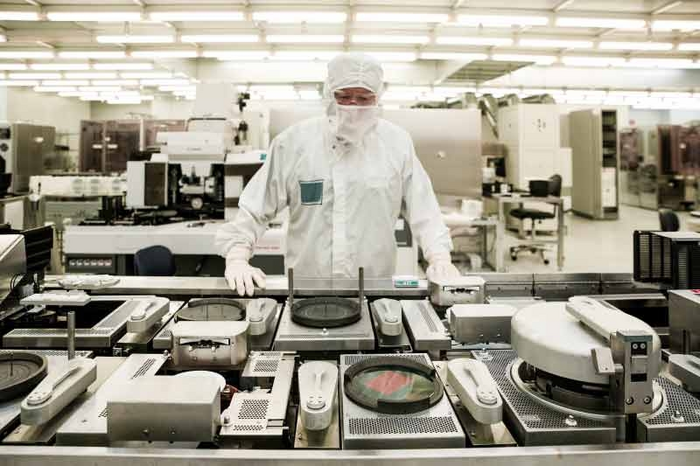
Engineering Science (Microelectronics), BS
Prepare to excel in the microelectronics industry with the BS program in engineering science with a concentration in microelectronics. Students master fundamental mathematics, coding, digital design and physics, while simultaneously
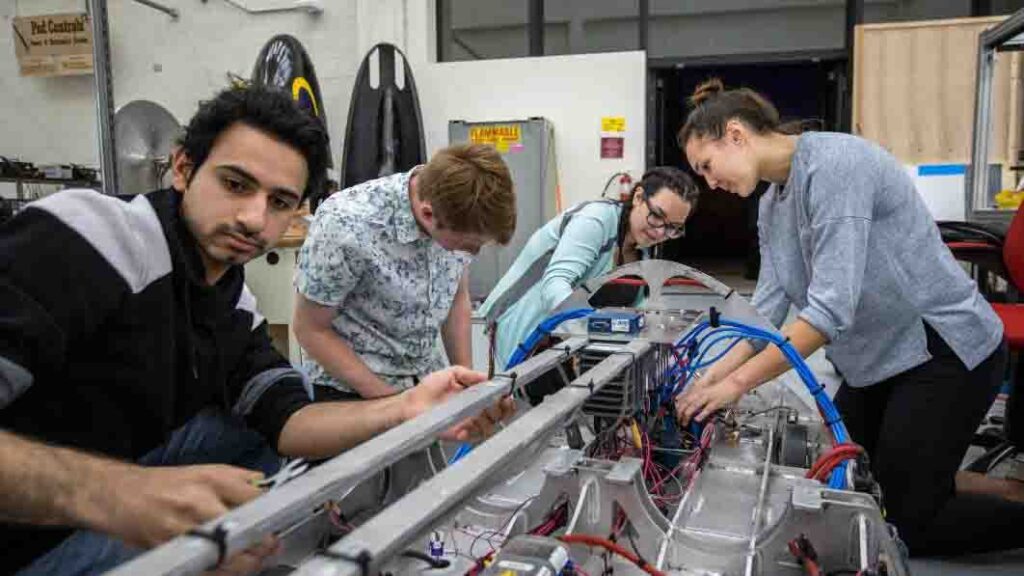
Engineering, BSE
The BSE program in engineering prepares graduates to collaborate across disciplines to design and build solutions to real-world problems. Students can choose from multiple concentrations with application in the microelectronics industry, including electrical systems, mechanical engineering systems and robotics, as well as automotives.

Environmental Engineering, BSE
The BSE program in environmental engineering equips students to handle a variety of issues related to microelectronics manufacturing including air pollution control; analysis of the fate and transport of pollutants; application of sustainable design principles; water and wastewater treatment systems; hazardous waste containment systems; solid waste management systems; remediation of contaminated soil, sediment and water; and water quality, conservation and reuse.

Hazardous Materials and Waste Management
This certificate provides current and prospective employees of multiple industries, including microelectronics, with a comprehensive and practical curriculum of study in hazardous materials management. It is targeted to environmental professionals who engage in management and transportation of hazardous materials and waste and includes several industry-required trainings.
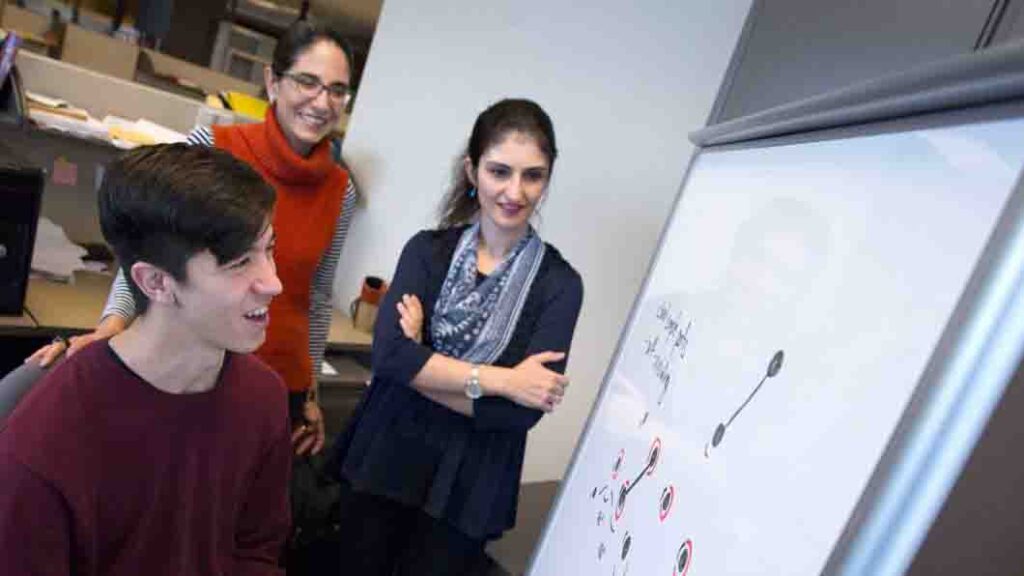
Industrial Engineering, BSE
The BSE program in industrial engineering deals with design, improvement, installation and operation of integrated systems of people, materials, information, equipment and energy with the purpose of determining efficient ways to develop products and services in multiple industries, including microelectronics.
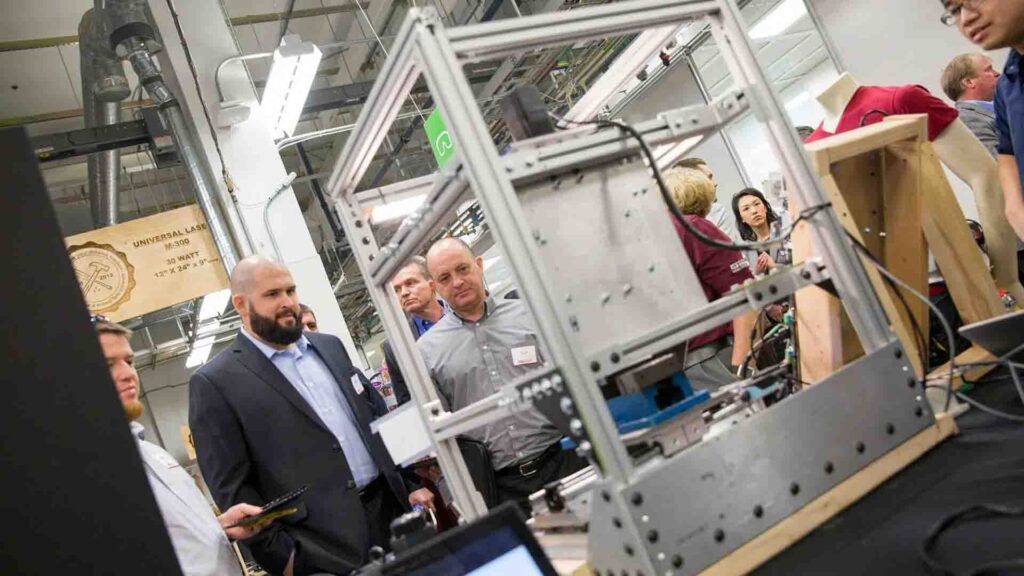
Manufacturing Engineering, BS
The BS program in manufacturing engineering prepares students for success in advanced manufacturing, including in microelectronics. Students will learn about statistical methods to control manufacturing operations; automated manufacturing systems for factory operation; manufacturing tooling and environments; production processes; and technological leadership.
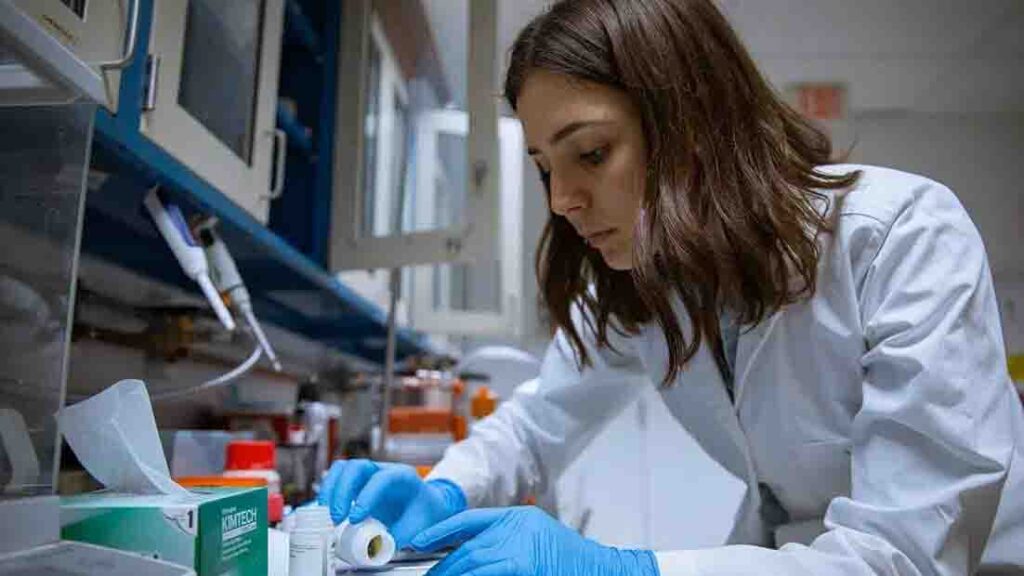
Materials Science and Engineering, BSE
The BSE in materials science and engineering addresses the discovery, synthesis, processing, manufacturing and characterization of substances widely used in the microelectronics industry, including sustainable materials, polymers, metals, semiconductors, ceramics and composites. The program prepares students to discover and design new and better materials.
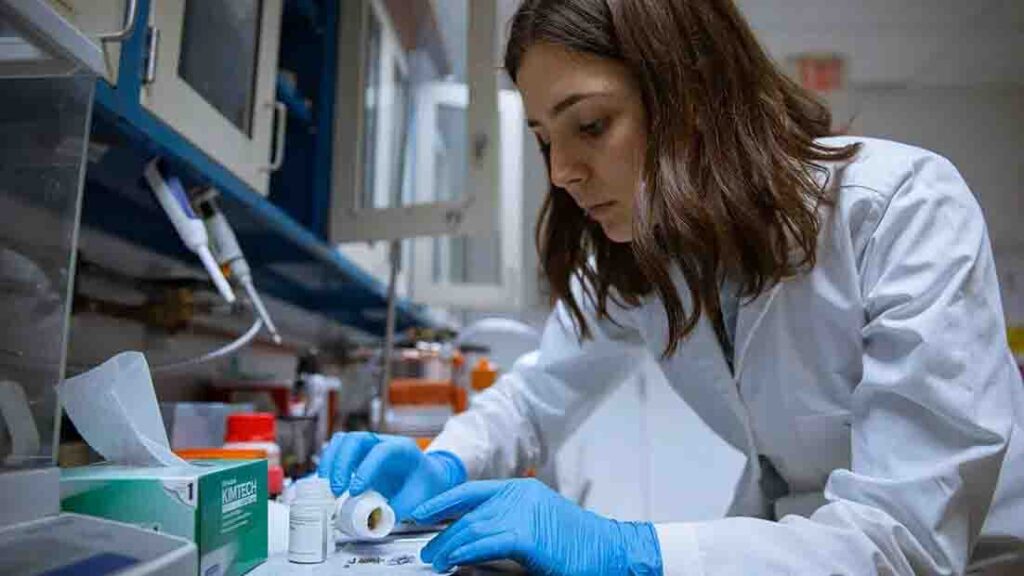
Materials Science and Engineering, Minor
The materials science and engineering minor program gives science and engineering majors an in-depth understanding of materials that can help to position them for success in the microelectronics industry, including materials structure, processing, properties and performance.
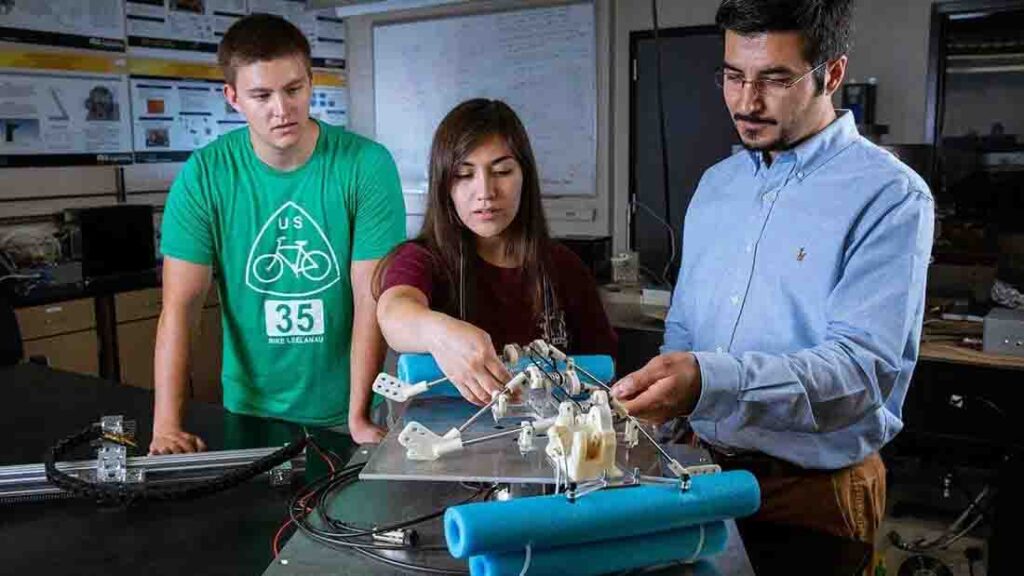
Mechanical Engineering, BSE
Mechanical engineering is a creative, diverse discipline with application in the microelectronics industry and beyond. The mechanical engineering BSE curriculum includes the study of the principles governing energy transfer, mechanical design, sensors and control devices and the application of these principles to the creative solution of practical modern problems.
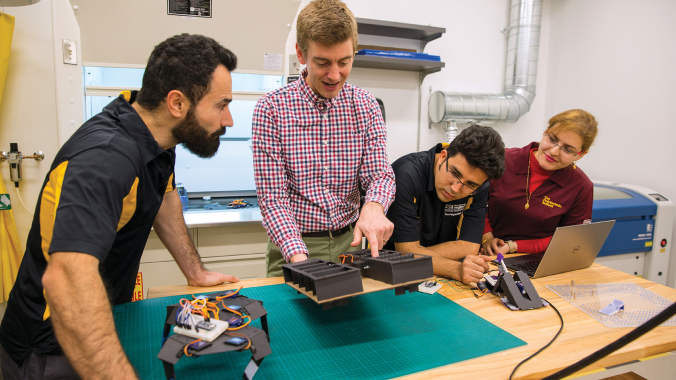
Robotics and Autonomous Systems, BS
The BS program in robotics and autonomous systems provides students with a well-rounded education in robotics, controls, autonomous systems and automation. It is intended primarily for those who desire to develop general expertise in robotics and autonomous systems, including both theory and application of robotics and autonomous systems technologies, systems integration and data fusion techniques, and modeling and simulation development.
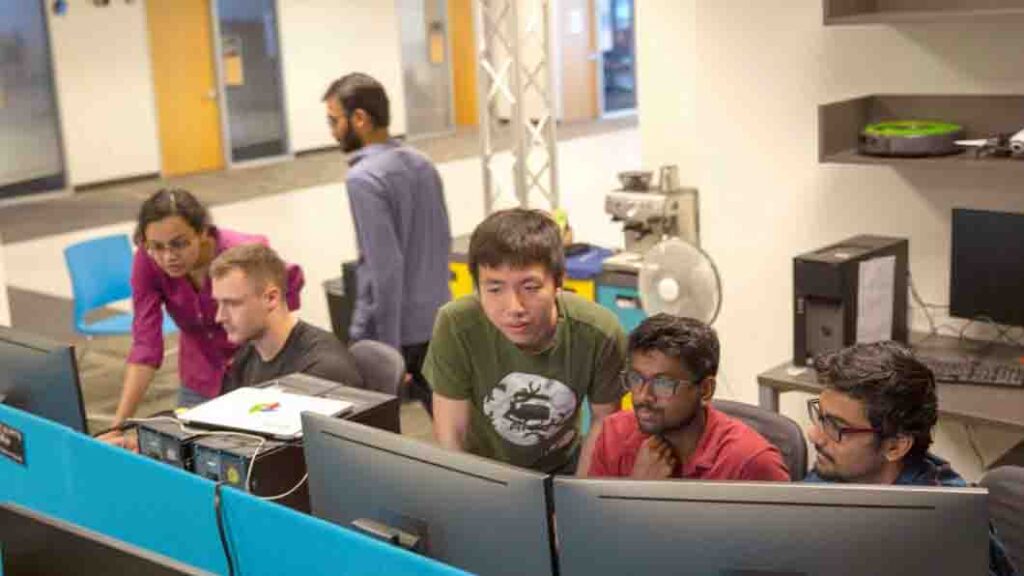
Software Engineering, BS
The BS program in software engineering blends engineering, computing, project leadership and software construction, equipping students to develop creative software solutions to challenges in microelectronics and other industries. Graduates of the program will possess the knowledge and skills of a defined engineering approach to complex systems analysis, planning, design and construction.